

Chaired by Senator Jorge Kajuru (PSB-GO), the meeting aimed to gather various opinions on the regulation of sports betting in Brazil, with the participation of the Ministry of Finance, the Federal Police, the Brazilian Football Confederation (CBF), the Brazilian Confederation of Games and Sports, the Superior Sports Justice Tribunal of Football, the Brazilian Institute for Responsible Gaming (IBJR), and the Brazilian Association of Sports Betting (Abaesp).
Noteworthy for their significance and substance were the presentations by José Francisco Manssur, the Special Secretary of the Ministry of Finance and the person responsible for regulating sports betting in Brazil, and Alessandro Maciel Lopes, a delegate of the Federal Police representing the government.
Both of them emphasized the importance of regulating sports betting to combat externalities such as match-fixing, gambling addiction, and money laundering.
"We are complying with the law by working towards the regulation of sports betting, which was established with the approval of Law 13,756/2018. The previous government did not do so, and now we are fulfilling what was determined nearly five years ago," stated José Francisco Manssur.
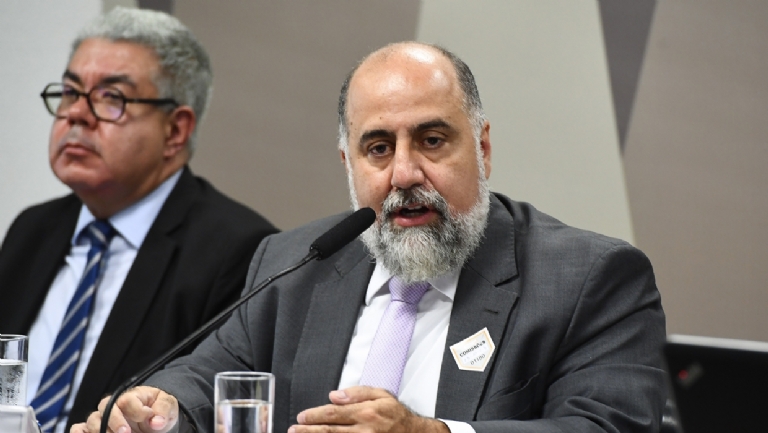
According to him, everything that has been done since the beginning of the new government is about bringing transparency from a regulatory perspective and ensuring that the law is enforced.
Among the concerns of the Ministry of Finance, according to him, was the implementation of measures to promote responsible gambling. "We are bombarded with sports betting advertising, and we need to show that gambling is not a means to get rich."
Manssur highlighted that the regulation of sports betting is the best way to address addiction. "With it, we will have means to assess the behavior of bettors and even work on how the sector should approach advertising and player engagement to prevent them from being lured by the dream of big winnings," he assessed.
Tax justice
The Ministry of Finance's advisor reiterated what he has been saying in recent weeks about the issue of revenue. "It's unacceptable that this sector has grown over the last five years, collecting between R$ 100 and R$ 150 billion without paying taxes. It's not a revenue frenzy, it's tax justice!" he emphasized.
According to him, the percentages were defined by the legislature. "Initially, the percentage was set at 5% in Law 13,756/2018, and today we have reached 18%. From now on, the Senate determines the percentage and allocation."
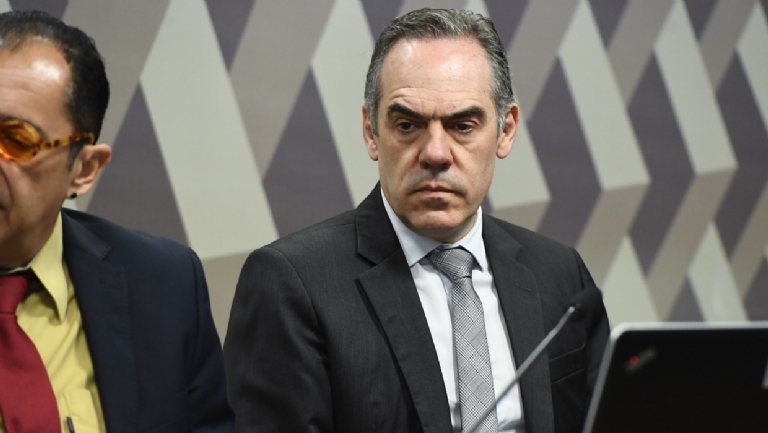
Alessandro Maciel Lopes, a delegate of the Federal Police, pointed out that regulation is a topic that requires in-depth analysis and is important. "A complete prohibition of the activity does not allow us to see what is actually happening beneath the surface. With regulation, there is greater control by the state. It also enables the suppression of match-fixing and money laundering," he said, highlighting that "what is lacking in regulation are compliance aspects" to make the text even more suitable.
Some opposing opinions to the regulation of sports betting were presented without any scientific basis, especially regarding the costs of treating individuals with gambling addiction, risks of increased match-fixing, money laundering, and tax evasion.
Rodrigo Alves, president of the Brazilian Association of Sports Betting (Abaesp), provided a clear and informative presentation and explained the perspective of the bettor to the participants in the public hearing. "Sports betting has been around for a long time, and with the sector's legalization, there has been a boom in Brazil. Now, as bettors, we hope that the activity is regulated as soon as possible."
"Since 2015, when Portugal regulated the activity, we began to mobilize as consumers and saw that Brazil would follow the path of regulation," he recounted.
No to taxes on bettors
According to him, the legalization in 2018 created a "fundamental flaw in Law 13,756 by categorizing sports betting as a lottery. This equivalence led to inappropriate consequences. With Provisional Measure (PM) 1,182 and Bill 3,626, the situation became even worse. We were heard throughout this entire process, but we couldn't demonstrate that taxing bettors wouldn't divert players to the regulated market."
In his assessment, taxing bettors should not exist, but in the worst case, “it could be based on a seasonal or monthly calculation, for example."
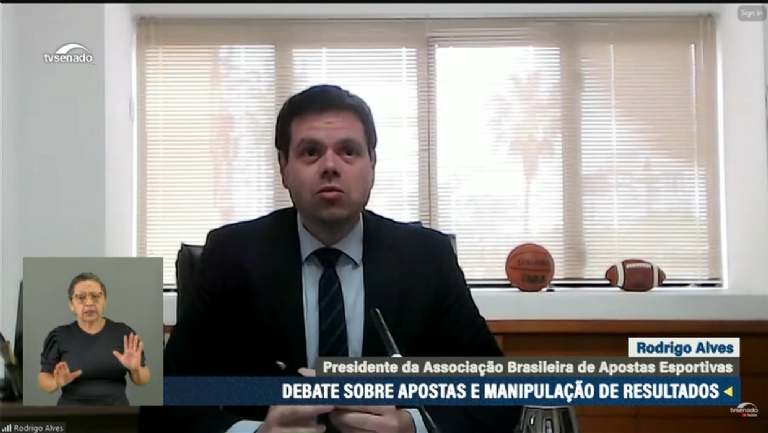
Alves made it clear to the audience that the online casino should not be addressed in the sports betting regulation project. "It should be discussed in Bill 442/91,” he commented, concluding that "sports betting is for entertainment. There's a small percentage of bettors who are profitable. In other words, it's an activity that can be professionalized, and when you can consistently make money from it, it needs to be treated accordingly."
Bruno Lobato, president of the National Lottery Association, once again advocated for the inclusion of the lottery network in the operation of sports betting in Brazil, emphasizing its importance in serving society, especially in terms of distributing social benefits. "It is unfair competition to authorize sports betting companies with a network of more than 13 thousand lottery operators who contribute so much to creating jobs and serving those who need it most from Caixa Econômica Federal."
Prohibition is not the solution
Andre Gelfi, the President of the Brazilian Institute for Responsible Gaming (IBJR), introduced the organization, emphasizing that "we represent international betting companies that are spread around the world. Despite being just 14 companies, they are the largest on the planet, and they are closely following the regulatory process with great concern."
According to him, "today we are in a perfect storm, and it's a complete mess. We have an undefined number of operators and betting providers in Brazil, and there is no control over the activity. In 2018, this was accentuated by the exponential growth caused by the pandemic and the arrival of PIX, which caused a boom."
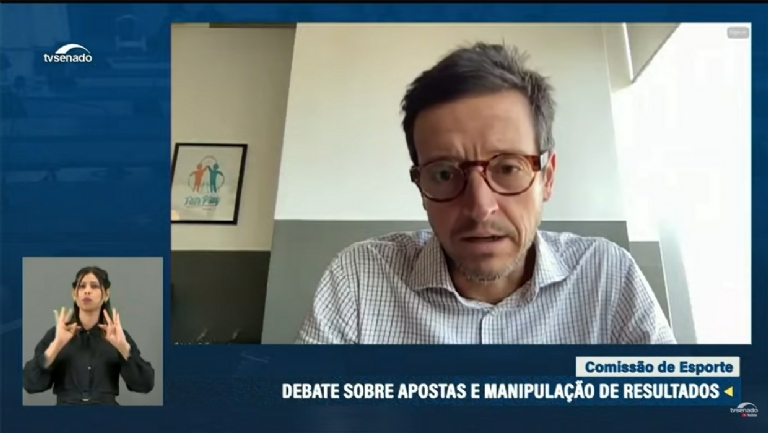
"The gaming market is a reality, and we have two alternatives. The first is to look at it in the best way possible to mitigate negative externalities or attempt to prohibit it from happening. I don't believe prohibition is the solution. The market is here, and it's a billion-dollar industry. We are working with numbers on the order of R$5.8 billion in sports betting for this year. If we add other games, this market reaches something close to R$13 billion. And all this river of bets flows out of Brazil. Our challenge is to channel and bring this river to Brazil," Gelfi stated.
"Bringing this river to Brazil gives us the ability to take care of it. Measures for revenue collection, combating match-fixing, and addressing disorders are ineffective when this river flows out of Brazil. We need to formalize this market in Brazil," he explained.
To achieve this, according to Gelfi, it will only be possible if it is viable from a regulatory standpoint. "We have a tax issue. As taxes, in the bill that left the Chamber for the Senate, are high, and we fear, based on international experience, that we may not be able to formalize the market in Brazil as it should."
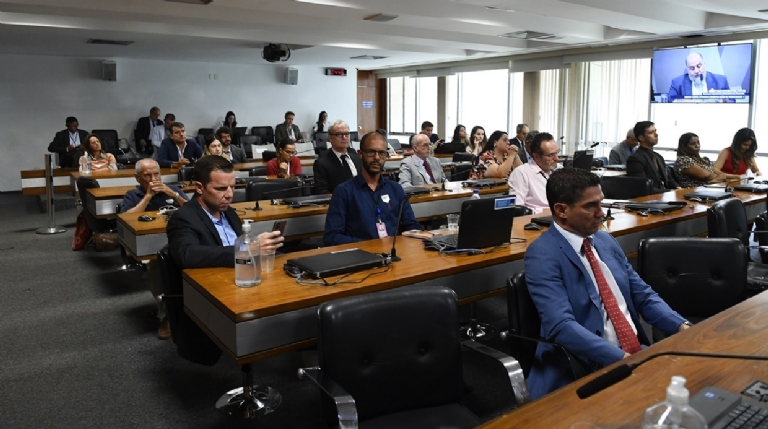
From there, it will be possible to work on the externalities and mitigate them. "The issues are well-known and a result of an unregulated market. It exists, and we have two alternatives, to acknowledge it or not," he concluded.
In conclusion, Manssur informed those present that all externalities, such as money laundering risks, combating match-fixing, and support for gambling addicts, will be included in the regulations as soon as the Bill 3626/2023 is approved by the National Congress.
Source: GMB